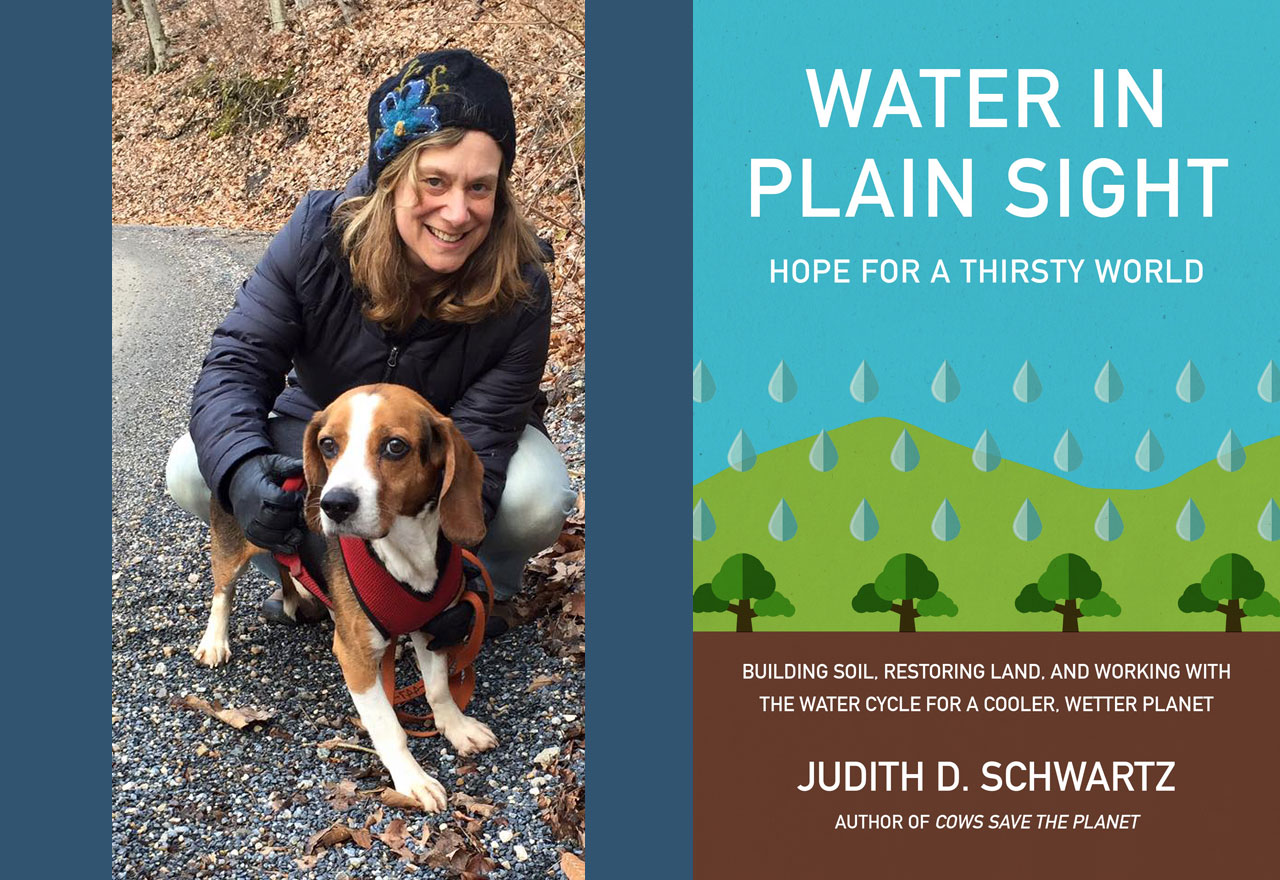By Melody Morrell, Operations Director
[THIS ARTICLE WAS PREVIOUSLY PUBLISHED IN THE WINTER ISSUE OF THE CULTIVATOR, CORNUCOPIA’S QUARTERLY NEWSLETTER.]
As a grandmother, I pay careful attention to what my family eats. I grow nutrient-dense produce in my garden, and I seek out authentic, certified organic food from local farmers whenever possible.
I do this, in part, to keep harmful chemical residues out of the soil, out of the water, and out of the bodies of the people I love. But my real driver is the future of my grandson.
During a time when the planet is warming and drying, my food choices are more than a symbolic act. As a consumer of organic food and an advocate for organic agriculture, my food dollars support farmers who work to regenerate the land, build biodiversity, and draw carbon out of the atmosphere.
In order to more fully understand just how organic agriculture impacts climate health, I delved into the compelling and auspicious work of Judith D. Schwartz.
In her recent book, Water in Plain Sight: Hope for a Thirsty World, Schwartz skillfully outlines how humans can build nature-based solutions to restore climate health by better understanding the relationships among plants, soil, and water.
I had the pleasure of speaking with Schwartz last month from her home in Bennington, Vermont. Enthusiastically, she explained to me that “Over 90% of what drives our climate is the water cycle!”
The water cycle signifies the ways in which water is continuously moving on, above, and below the surface of the Earth.
Schwartz expounds, “Water, intrinsic to all life forms, is the ultimate shape-shifter. It expands in volume or retrenches; it retains and releases energy. It changes state, moving from gas to liquid to solid and back again, in an ongoing dialogue with the earth and sun.”
Throughout her well-researched and highly referenced publication, Schwartz chronicles stories from around the world, artfully weaving scientific explanations through her accounts of on-the-ground examples that bring hope for solutions to heal the planet.
INFILTRATION: She brings the reader to Allan Savory’s Africa Center for Holistic Management, where community members restored perennial flow to the Dimbangombe River by strategically managing livestock around its banks. As a result of holistic planned grazing, entire villages that relied on aid are now food sovereign.
CONDENSATION: She introduces the reader to two farmers in arid, far-west Texas who collect 60 gallons of water each day by capturing dew in their “rain barn.”
TRANSPIRATION: And she explores Brazil’s tropical rainforests and their role in transferring large quantities of water from the ground into the air, simultaneously cooling the planet.
“My goal in this book has been to draw attention to the way water functions in the environment, to bring concepts like infiltration, transpiration, and condensation into our discussions of water problems and solutions. Doing so, I believe, broadens our repertoire of strategies with which to provide clean water to everyone on the planet. And to show that regenerating landscapes can revive water sources: this is where we’ll find our water—in plain sight.”
By guiding natural processes and setting a stage for the living soil, regenerative organic farmers are the conductors of this grand symphony, the divine consonance of soil, water, and energy cycles.
Schwartz loves the simplicity of this explanation from Australian agricultural pioneer Peter Andrews: Plants manage water. And, in managing water, they are managing heat.
Conscientious consumers everywhere are driving sustainability through their dietary choices. Now more than ever, we must support authentic organic farmers and practices that regenerate soil, water, and climate health.
The Cornucopia Institute champions the crucial work of authentic organic farmers, an investment in clean water, rich soils, health-promoting food, diverse ecosystems, and food systems that honor a sacred connection with the natural world—and signal a more promising future for my grandson.


